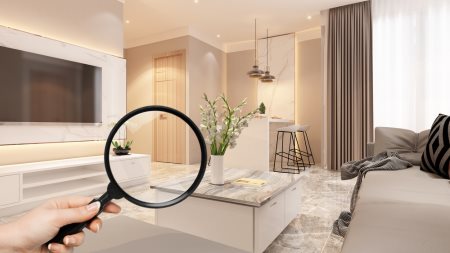Included in all lease agreements between a landlord and a tenant, is a stipulation that the landlord will undertake an entry inspection with a tenant, and an exit inspection when the tenant leaves. This is in terms of the Rental Housing Act 50 of 1999, which guides and protects both landlord and tenant during the course of their rental contract.
Section 5(3) of this Act provides that the entry inspection is must be undertaken to avoid any disputes after the tenant agreement has expired or cancelled. What landlord and tenant must agree on are whether defects exist or not, and the responsibility of rectifying any damage that exists. This inspection will also give clarity about the condition of the rented property.
Exit inspection
This is governed by Section 5(3)(f) of the Act, which indicates such an inspection must be undertaken at least three dates prior to the lease expiry, or latest on the last day. This inspection records whether or not the exiting tenant needs to fix any damage caused by the tenant during their occupation of the property.
Within the Act is a provision that the landlord is allowed to use the tenant’s deposit to repair any damaged caused by the tenant, be that by themself or one of their visitors. The landlord is obliged to hold receipts of repair costs for inspection by the tenant. If the landlord is not willing to share these receipts, or cannot produce those, he or she can be sued by the tenant for any amounts the landlord has deducted from the deposit used specifically for such repair work.
Comparison inspections
Entry and exit inspections must be compared to establish and clarify any changes in the condition of the property.
Both the entry and exit inspection reports are part of the tenant-landlord agreement, and both must sign their acceptance, and each must hold a copy of the agreement.
Interior and exterior inspections
The following should be noted during the inspections:
Exterior
- Condition of roof, gutters, downspouts, foundation, drains, and exterior walls.
- Landscaping features including the responsibilities of maintaining the garden and to what level.
- Condition of the paving, be that on the driveway, sidewalks, parking and entertainment areas.
- Condition of fences, gates, security features, or other outdoor structures such as umbrella’s, fire pits and braai facilities etc.
Interior
- Condition of the interior walls, floors, ceilings, and paint colours.
- Doors and windows locking mechanisms and their working condition.
- All appliances or fixtures provided by the landlord should be working order.
- Smoke detectors, air conditioners, and alarm systems should be working include their components, such as remotes, key pads, and wall operating systems.
- Plumbing and electrics must be thoroughly checked including for leaks, damage, pressure, shower heads, pipes, switches and outlets, fans, light fixtures, electric panel, filters, thermostats, etc.
Overall safety across all aspects of the inspections must be assured.
Miscellaneous inspections
These can include: carpets, flooring, blinds, curtains, garage doors and their openers, any appliances that the landlord provides; pot plants, dustbins etc. This can be a comprehensive list or generic provided the landlord specifies those in the contract.
Consequences of not doing inspections
If these inspections are not undertaken, and according to Section 5(3)(J) of the Rental Housing Act, the property will be deemed to be in a good state of repair and the landlord will not have any claim against the tenant should there be a dispute later.
Rental agency and property practitioner obligations
If a rental agent or property practitioner hands over the keys of a dwelling to a tenant without doing a property inspection, in terms of the Property Practitioners Act (PPA), it is deemed that there are no defects to the property before tenancy and after the lease expires. Section 67 of this Act says that a property practitioner or rental agent must not accept a mandate unless the property owner has signed a Mandatory Disclosure Form, which must be annexed and attached to the contract of the prospective tenant. Again, if this is not attached, it is taken that there are no defects to the property.
However, if the property practitioner or rental agent does not undertake the property inspections when required to do so by the owner of the property, the owner may hold these agents liable, the extent to which will need to be determined through legal channels.
Tenant-only inspection
A tenant is advised to undertake their own inspection prior to signing any rental agreement, to understand what the rental inspections cover. This is especially helpful if any of the vested parties do not do the inspection, and which may also compromise the decision of whether to sign the agreement at all.


